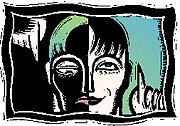Low Folic Acid Levels to Heart Disease


In an Oct. 4 report in the Journal of the American Medical Association, UW scientists noted that diets low in folic acid have high levels of homocysteine, a byproduct of protein digestion.
"High homocysteine levels can cause arteriosclerosis--thickening of the arteries--which can result in heart attacks, strokes and premature death," says UW Epidemiology Professor Shirley Beresford. The UW study estimates that up to 10 percent of deaths from coronary artery disease in U.S. men over age 45--about 35,000 deaths per year--are attributable to high homocysteine levels.
The study data suggests that increased folic acid in the diet is the most effective means of lowering the basal level of homocysteine, but researchers said that more work is needed to prove that folic acid will always reduce these levels.
Beresford led a team of UW researchers through a review of 38 previous studies to understand folic acid's effect on heart disease. The team suggests several steps to increase folic acid intake in the U.S. population: add two or three daily servings of fruits and vegetables--especially orange juice, spinach and dried beans; have those not taking supplements take 400 micrograms of folic acid daily; and fortify flours and cereal products with folic acid.

The brainchild of Computer Science and Engineering Professor Oren Etzioni and graduate student Erik Selberg, the software robot, or "softbot," searches six different on-line databases at the same time. It also weeds out irrelevant, outdated or just plain unavailable information.
Called MetaCrawler, the free service can be found at the following Web address: http://www.cs.washingto.edu/research/metacrawler/

In fact, the reverse is true, according to UW Psychology Professor Jonathon Brown. "People with low self-esteem suffer more when they fail and there is some evidence that they overgeneralize the negative implications of failure.
"In one of our studies, low self-esteem people rated their general intelligence and competencies more negatively after failure than after success. High self-esteem subjects tended to do just the opposite. They rated their intelligence a bit more positively after failure than after success."
The fear of failure for some low self-esteem people becomes so severe that they avoid certain behaviors. For example, for two 15-year-old boys asking a girl out on a date, a boy with low-self esteem would need "a 95 percent chance of a positive response to ask her out. A boy with high self-esteem would ask her out when the odds were only 50-50," says Brown. His research recently appeared in the Journal of Personality and Social Psychology.
Vistas is a quarterly column compiled by Columns Editor Tom Griffin that highlights recent research findings at the University of Washington.
Send a letter to the editor at griffin@u.washington.edu.
Return to December 1995 Table of Contents.